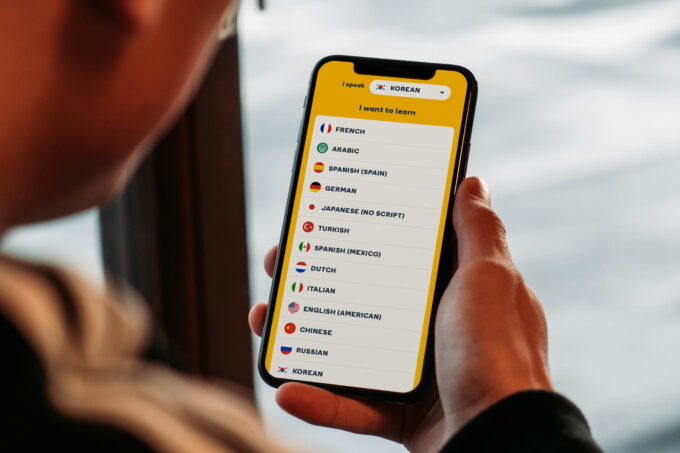There’s something about learning a new language that just feels so rewarding. It could be the sense of accomplishment you feel when you finally understand what people are saying to you in Spanish, or the pride you experience when reading a French book without having to look up any words. Whatever it is, there’s no denying that learning a new language can be incredibly fun and illuminating.
One of the best things about learning a new language is that it makes traveling so much more enjoyable. Instead of being stuck with English-speaking tourists all week long, now you can actually communicate with locals and get to know them on a deeper level. Plus, nothing beats the feeling of successfully ordering dinner in Italian or striking up a conversation with some Germans at Oktoberfest!
Of course, knowing how to speak another language doesn’t just come in handy while traveling – it can also help improve your career prospects too. In an increasingly globalized world economy, speaking multiple languages has never been more important for success in business dealings abroad. So if you’re looking for ways to boost your resume and set yourself apart from other jobseekers, adding another Language proficiency section won’t go amiss!
8 Benefits of learning a new language

Source: babbel.com
- Learning a new language can help improve your memory and problem-solving skills.
- It can make you smarter – studies have shown that bilingual people are better at multitasking and keeping track of multiple pieces of information simultaneously.
- Speaking another language gives you the opportunity to connect with more people from around the world, enhancing your travel experiences significantly!
- It also looks great on your resume when applying for jobs that require international communication (which is becoming increasingly common).
- Bilingualism has been linked with preventing Alzheimer’s Disease – so it’s definitely worth learning a new language as we age!
- Conjugating verbs, memorizing vocabulary words, and understanding sentence structure in another language requires unique cognitive skills – which means learning a new language actually exercises your brain!
- Speaking someone else’s native tongue forces you to pay attention to every little detail in their conversation (and vice versa), improving intercultural communicative competence.
- According to some research, if children are raised bilingually they tend to score higher on standardized tests than those who know only one language
Tips to learn a new language
There are a number of different tips that can help you to learn any language. However, before getting into the specifics of each tip, it is important to set some ground rules first. Make sure that you dedicate enough time every day to learning the language and practicing it – without this commitment, even the best tips in the world will not be effective. Additionally, make sure that you are constantly testing yourself on what you have learned; if pronunciation or grammar is still giving you trouble after several months of study then go back over those particular areas until they become mastered. Finally with regards to committing time daily: do not spend too much time reviewing material from previous days as this can actually hinder your ability to move forward successfully with new content (more on why later).
That said however, here are essential tips for anyone looking to learn a new language:
Install an App

Source: themanual.com
When it comes to learning a new language, there are plenty of different ways to go about it. Many people opt for traditional methods such as attending classes or hiring a tutor. However, with the advent of technology, more and more people are turning to apps and software programs to help them learn.
One app that is gaining in popularity is Lingoda. It offers users the chance to learn English, Spanish, French, German and other languages for free. The app has both auditory and visual elements so learners can get real-time feedback on their pronunciation as well as see how they’re doing in terms of grammar usage and vocabulary acquisition.
Lingoda also allows users to compete against others from all over the world in order to motivate them further. In addition, the app keeps track of your progress so you can see how far you’ve come (or still have left) to go!
You can get 40% discount coupons at Couponfond.
Learn Common Vocabulary

Source: educationsupporthub.co.uk
One of the best ways to learn a new language is by familiarizing yourself with common vocabulary words. This helps you get comfortable with the structure and pronunciation of the language, and it also gives you a foundation for building more complex phrases and sentences.
There are many online resources that can help you learn common vocabulary words in any language. You can find lists of essential words and expressions, audio recordings to practice your pronunciation, quizzes to test your knowledge, and flashcards to make learning easier.
In addition, there are plenty of bilingual dictionaries available online or as apps that allow you to search for translations between two languages. These dictionaries offer definitions, sample sentences demonstrating how the word is used contextually, synonyms and antonyms if applicable, as well as idiomatic expressions related to the word.
If possible try using these resources regularly when studying a new language – even if it’s just five minutes per day – so that over time you will build up an arsenal of useful vocabulary knowledge!
Connect With Native Speaker

Source: betranslated.com
There are a number of different ways that people can learn new languages. One popular and effective method is to connect with a native speaker. This way, learners can get the most accurate and natural conversation practice possible. Additionally, it can be more fun and engaging than classroom learning or studying from books or online courses!
When looking for someone to practise language speaking with, it’s important to find someone who you feel comfortable talking to. You could ask friends or family members if they know anyone who speaks your target language fluently – chances are there will be at least one person in your network who does! Social media networks like Facebook and LinkedIn are also great resources for finding language partners; just do a quick search for groups or forums related to the language you’re interested in learning.
Once you’ve found someone that you want to practice with, make sure to agree on some basic ground rules before beginning your conversations. It’s important that both parties feel comfortable participating without feeling pressured or uncomfortable – after all, this should be an enjoyable experience!
Make Travel Plans

Source: unsplash.com
When it comes to language learning, there’s no one-size-fits-all approach. Some people prefer an immersive experience, traveling to a foreign country where they can be surrounded by the language they’re trying to learn. Others might prefer more structure and focus on grammar drills and vocabulary flashcards. No matter what your preference is, here are some tips for making travel plans in order to learn a new language:
1) Research the best destinations for learning your target language. There are many online resources that can help you find the right destination based on your level of proficiency and interests. For instance, if you want to study Spanish intensely then Spain would be a great choice – but if you’re just starting out then Mexico or Costa Rica may be better options since the pronunciation is simpler than in Spain (although the spelling may present more of a challenge!).
2) Choose accommodations that will support your language goals. If you’re looking for total immersion, stay with a host family who only speaks the target language; alternatively, choose an Airbnb or hotel room where all of the staff members also speak only that tongue. On the other hand, if complete immersion isn’t necessary (or desirable), try booking rooms near people who speak.
Engage With The Culture

Source: freeportpress.com
The best way to learn a new language is to engage with the culture that speaks it. This can be done in many ways, including traveling to countries where the language is spoken, listening to music and watching films and television programmes in the target language, or reading books and magazines.
It’s also important to get involved with local people as much as possible – this could mean finding a conversation group or course near you, attending meetups organized by locals on social media platforms such as Facebook or Meetup.com, or simply asking friends if they know anyone who can help you practise your speaking skills.
Being open-minded and enthusiastic about learning will make the process more enjoyable for you, ultimately helping you achieve your goals faster!







